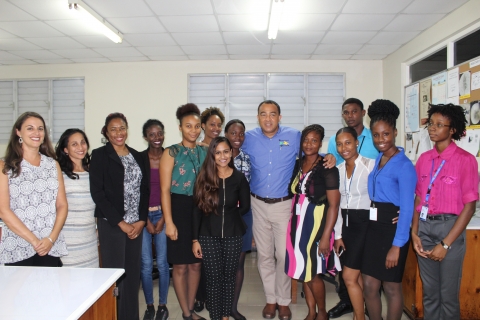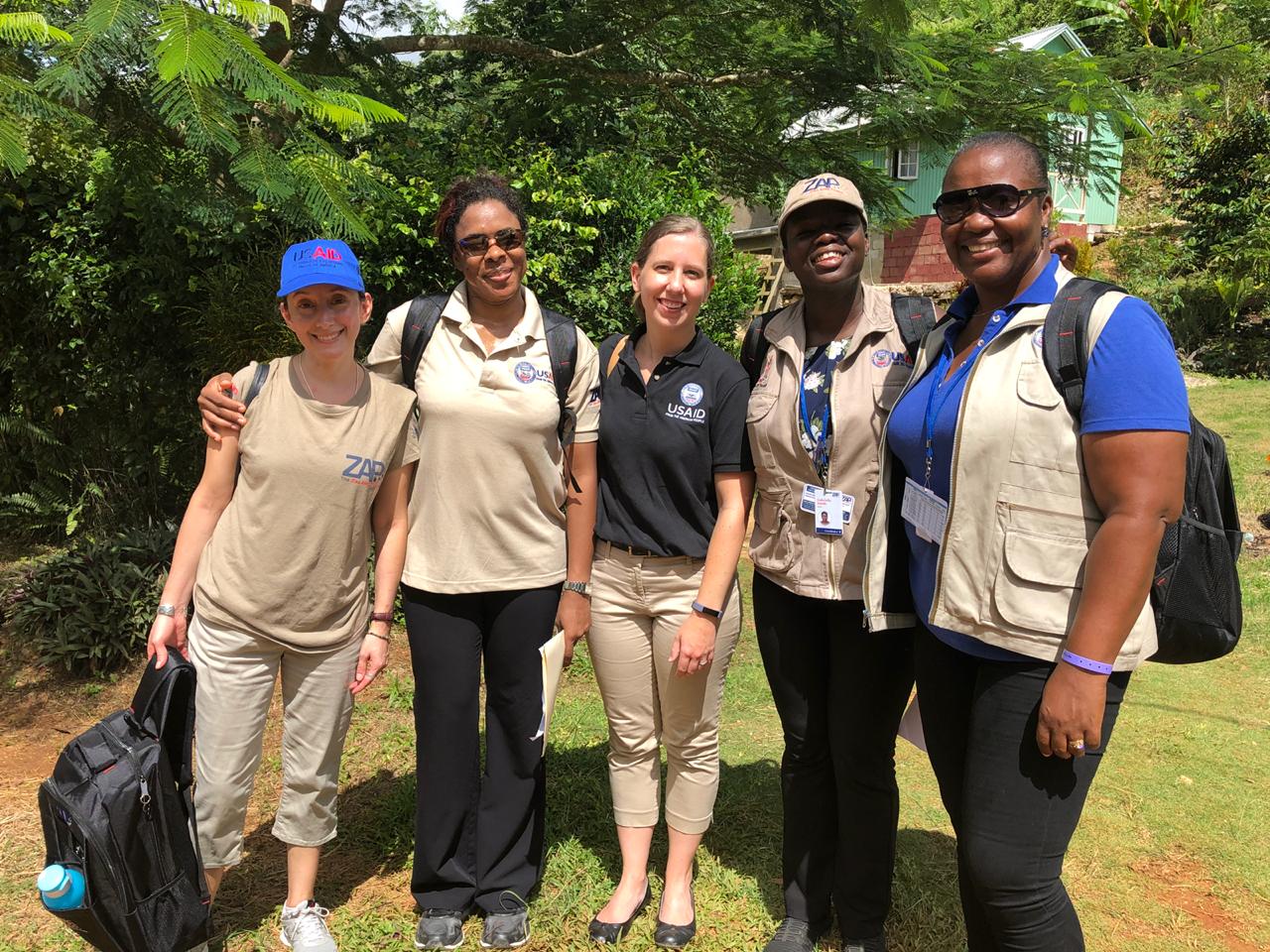

ZAP Laboratory Team at the MCRU with the Hon. Min. of Health and Wellness Dr. Christopher Tufton
Anyone who has had chikungunya, Zika and/or dengue will appreciate the growing concern in the Caribbean about the increasing incidence of mosquito-borne diseases. The warm, moist climates of the region present ideal conditions for mosquitoes to grow, and under the threat of climate change the disease burden from mosquito transmitted illnesses will only multiply. With medical treatments still in their infancy, health authorities have to actively pursue other ways to manage mosquito populations in order to curb disease spread. This usually involves eliminating active breeding sites and the use of insecticides to reduce both larvae and adult mosquito populations. The overuse of insecticides is, however, creating an additional challenge for health authorities due to a growing resistance in the mosquito population to the most commonly used insecticides whose efficacy have decreased in recent times. An ongoing collaborative research effort by UWI scientists along with Jamaica’s Ministry of Health and Wellness (MOHW) and other collaborators is trying to determine the scale of resistance, and identify the most effective insecticides to manage Aedes aegypti mosquito populations in Jamaica.
Two new studies emerging from the collaboration were recently published in the peer reviewed sources: Royal Society Open Science and PLoS neglected tropical diseases. The studies report on the scientific evaluation of the efficacy of a wide variety of commercially available insecticides which are routinely used in the management of mosquito populations in Jamaica. Among other things, the results showed that the bio-larvicide (Bacillus thuringiensis israelensis) was most effective at controlling larvae of Aedes aegypti populations in Jamaica, while two other families of insecticides (a carbamate and a pyrethroid) still showed effectiveness notwithstanding the growing status of resistance in the island. The results also revealed that Aedes aegypti mosquitoes in all fourteen parishes of Jamaica displayed equal levels of resistance to the insecticides being used. The scientific evidence is already being incorporated into decision making by the MOHW. For example, the results are providing a basis for standardizing practices by the MOHW to manage and reverse the threat of insecticide resistance in Aedes aegypti populations by showing that such practices may be uniformly applied across Jamaica.
The studies were designed and conducted by Dr. Sheena Francis, from the Faculty of Science and Technology (Natural Products Institute, UWI) in collaboration with multiple employees under the Zika AIRS Project (ZAP), Sherine Huntley-Jones and Dr. Simone Spence from the MOHW, Carolina Torres Gutierrez from Abt Associates, and Allison Belemvire and Kristen Alavi from the USAID.
To read the studies check out:
Francis, S., Crawford, J., McKenzie, S., Campbell, T., Wright, D., Hamilton, T., Huntley-Jones, S., Spence, S., Belemvire, A., Alavi, K., & Gutierrez, C. T. (2020). Comparative toxicity of larvicides and growth inhibitors on Aedes aegypti from select areas in Jamaica. Royal Society open science, 7(3), 192041. https://doi.org/10.1098/rsos.192041
Francis, S., Campbell, T., McKenzie, S., Wright, D., Crawford, J., Hamilton, T., Huntley-Jones, S., Spence, S., Belemvire, A., Alavi, K., & Torres Gutierrez, C. (2020). Screening of insecticide resistance in Aedes aegypti populations collected from parishes in Eastern Jamaica. PLoS neglected tropical diseases, 14(7), e0008490. https://doi.org/10.1371/journal.pntd.0008490
About the ZAP Project and the MCRU at UWI: In response to the recent Zika outbreak the United States Agency for International Development (USAID), funded the Zika AIRS Project (ZAP), as an emergency response project in multiple countries in the Caribbean and Latin American region. The project provided support to the Ministry of Health and Wellness in Jamaica (MOHW) including for the setting up of a Mosquito Control Research Unit (MCRU) Insectary in the Faculty of Science and Technology at the UWI. For more on MCRU see: https://jis.gov.jm/mosquito-control-programme-strengthened .

ZAP Team Members heading into the field. Carolina Guttierres Torres (Abt Assoc.), Kristen Alavi (USAID), Sheena Francis (ZAP Entomologist & NPI, UWI), and ZAP Field Managers
Published on 24 Aug, 2020